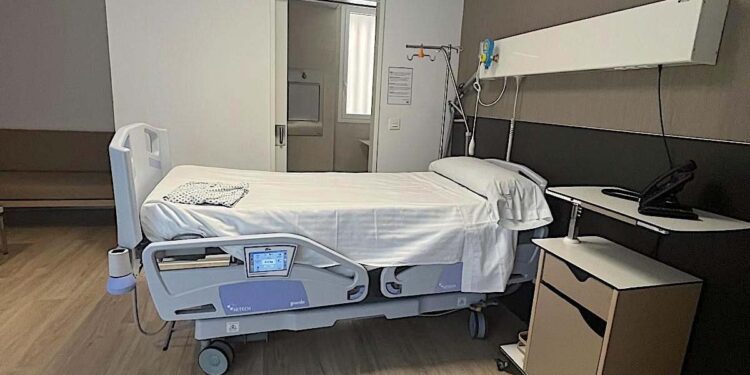The use of artificial intelligence (AI) in the health sector is already known through the development of different projects that focus mainly on greater precision in detecting certain pathologies, such as breast cancer. This is just one of the possibilities of AI in the healthcare sector that will now be expanded thanks to new applications.
One of these applications recently introduced are the Smart Beds 4.0. This means a bed that is intelligent thanks to the implementation of AI. Its main novelty is that it allows for continuous monitoring of the patient admitted to the hospital 24 hours a day.
This process is possible thanks to sensor systems and artificial intelligence to carry out monitoring of the person and indicate in the bed itself the different clinical variables or indicators.
This Smart Bed 4.0 thus allows for less invasive and more efficient hospital care. Thanks to this technology, the patient’s stay in the healthcare facility is more friendly and less invasive by avoiding, for example, the need to wake them up or manipulate them to take temperature or blood pressure measurements.
It is also possible to monitor other parameters such as blood oxygen saturation, blood pressure, temperature, or heart rate. In addition, for hospitalized patients, there are even more advantages, as they can be monitored as in the Intensive Care Unit.
Smart Bed 4.0 opens up new possibilities for the care and monitoring of long-stay patients by being able to control other variables or significant changes such as weight.
This monitoring is useful for both patients, families, and healthcare personnel, and also allows for working with individuals with a preventive approach in the medium and long term.
“Artificial intelligence can not only represent or detect a state, but also identify or group data associated with it to prevent future risks and improve individual and collective health,” says Andrés Visus, responsible for strategy and operations at Predictland, specialized in AI and machine learning.
This is possible because Smart Bed 4.0 works with the historical data of patients who have been on it to draw conclusions for subsequent clinical approaches. Privacy is preserved in data management because AI does not need to know names or any personal data. It simply works with patient medical profiles. Additionally, all processes that take place in hospitals, especially those related to people’s privacy, are supervised by an ethical committee.
Furthermore, Smart Bed 4.0 does not replace either the nursing professional or the specialist because clinical staff will have to monitor the machine’s readings, which also has the feature of alerting to possible changes that imply immediate severity.
Based on the results obtained from this pilot study, further steps are already being considered. The next steps will involve transferring the information displayed on the bed to the nursing stations, and even to the doctors’ offices.


